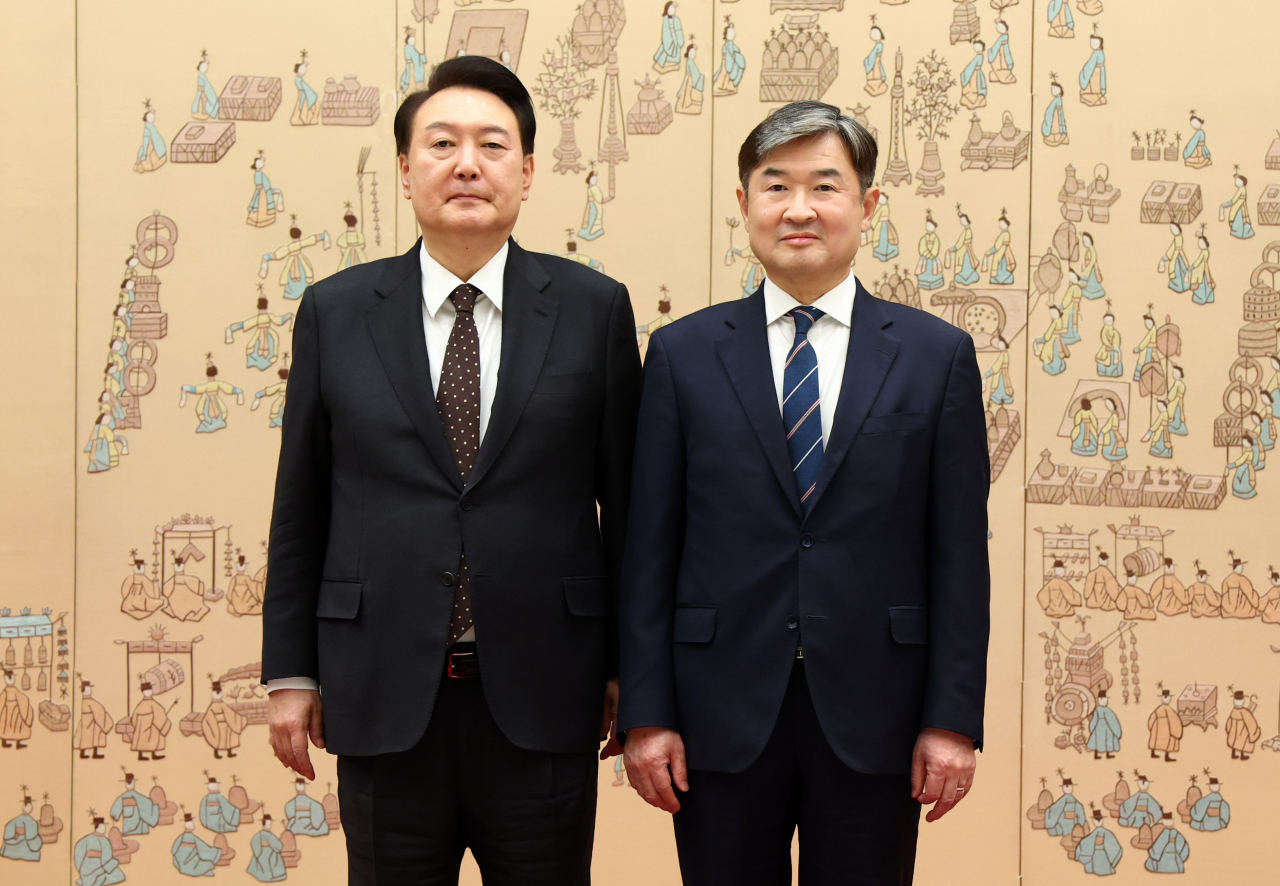South Korea’s spy chief vows to restore public faith in agency
By Kim ArinPublished : Jan. 17, 2024 - 16:29

Cho Tae-yong was sworn in on Wednesday as President Yoon Suk Yeol’s second director of the National Intelligence Service, filling the vacancy since his predecessor, Kim Kyou-hyun, left the post about two months ago.
In his first address Wednesday as the NIS chief, Cho vowed to turn the NIS into an agency “worthy of the trust of the South Korean people” during his tenure -- in an apparent reference to the internal power struggle at the agency, which had spilled over into public view in recent months.
He cited “North Korea’s increasingly open ambitions to upgrade its nuclear and missile capabilities” and the “intensifying US-China rivalry” as some of the security challenges facing the country and the agency.
In response to lawmakers last week, Cho forecast heightened risks of North Korea carrying out weapons tests and other provocations this year.
North Korea is ready to conduct its next nuclear test “any time,” the timing of which would depend on North Korean leader Kim Jong-un’s “political determination,” he said. After the new Hwasan-31 nuclear warhead was unveiled in March last year, the demand for another nuclear test to verify its performance has become “higher than ever.”
He said that North Korea may try to “undermine the stability of the governments of South Korea and the US” through “various types of provocations” using conventional weapons as well as nuclear and missile tests.
On the North’s Kim calling the South “a hostile country” at a year-end key party meeting, he said that such rhetoric was a continuation of the “demonstration of hostility toward South Korea” since before his rise to power in 2012.
Cho said that it was “highly regrettable” that the Kim has rejected the idea of shared statehood with South Korea, and that the North Korean leader should respond to the South’s efforts to reunite families separated during the Korean war.
He added that dialogue with North Korea should take place in a way that can “actually contribute to establishing peace and stability on the Korean Peninsula”
He said that as the NIS chief, he would do his part to support the Yoon administration’s aim of establishing “peace through force” by picking up signs of North Korean provocations early on.
His appointment was confirmed by Yoon on Tuesday afternoon, shortly following the National Assembly’s approval earlier that day -- despite a bruising confirmation hearing, in which some controversies in his personal life came to light.
At the confirmation hearing held a week ago, he faced scrutiny over his history of traffic offenses, most notably one from 1999 in which he was caught driving under the influence. He had his license suspended for 100 days and was sentenced to a fine of 700,000 won ($536).
“It is something that I should not have done, and it will not happen again,” he said on his DUI record.
Yoon tapping Cho to lead the NIS was also criticized by some opposition lawmakers as a “recycled choice.” Up until his nomination as spy chief in December, he was the president’s national security adviser and before that his top ambassador to the US.
Cho worked for the Ministry of Foreign Affairs for about 30 years before he was recruited in May 2019 by the People Power Party, which was then called the Liberty Korea Party. He entered the National Assembly as a proportional representative in 2020. He had left the ministry to join the conservative party to protest the North Korea policies of previous President Moon Jae-in, of the Democratic Party of Korea.
Over his career as a public servant, he held senior roles for the presidents of both parties and took part in key efforts to denuclearize North Korea across several administrations.



















![[Today’s K-pop] Treasure to publish magazine for debut anniversary](http://res.heraldm.com/phpwas/restmb_idxmake.php?idx=642&simg=/content/image/2024/07/26/20240726050551_0.jpg&u=)